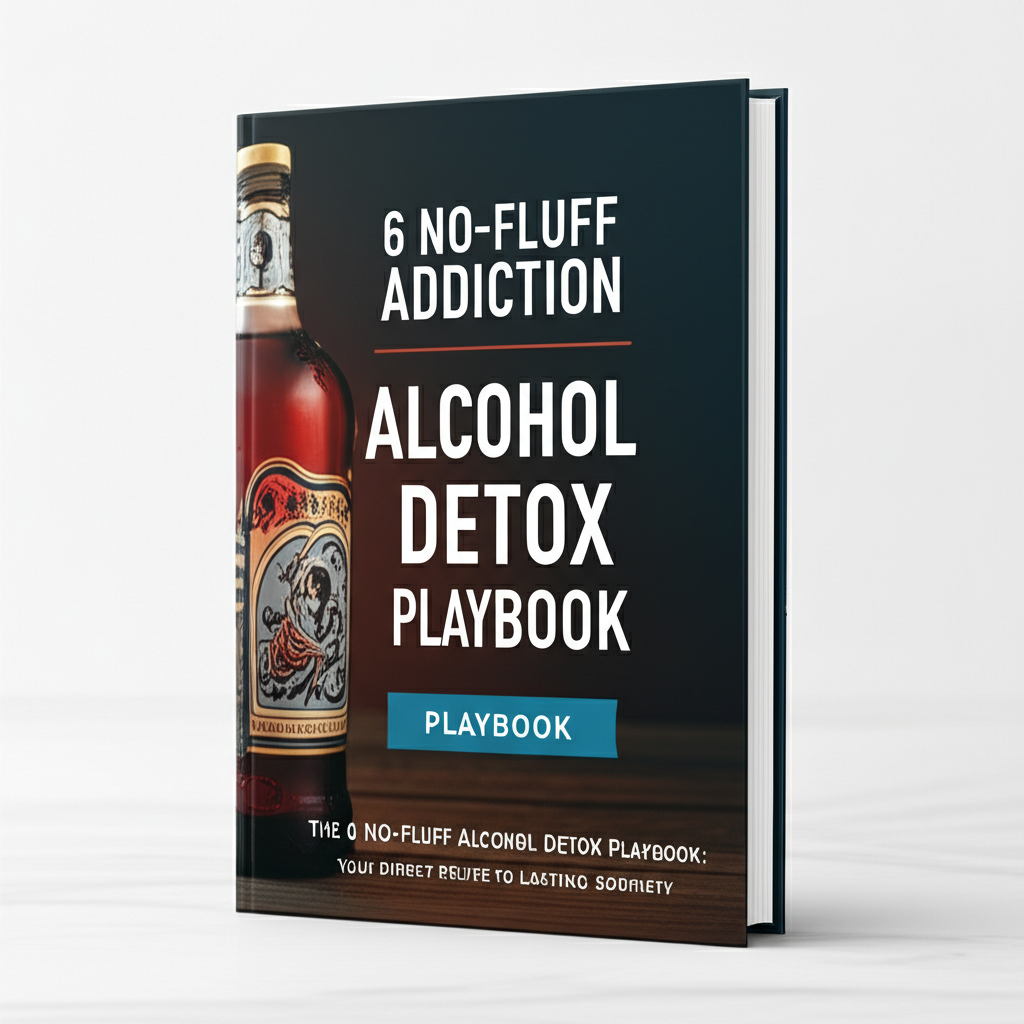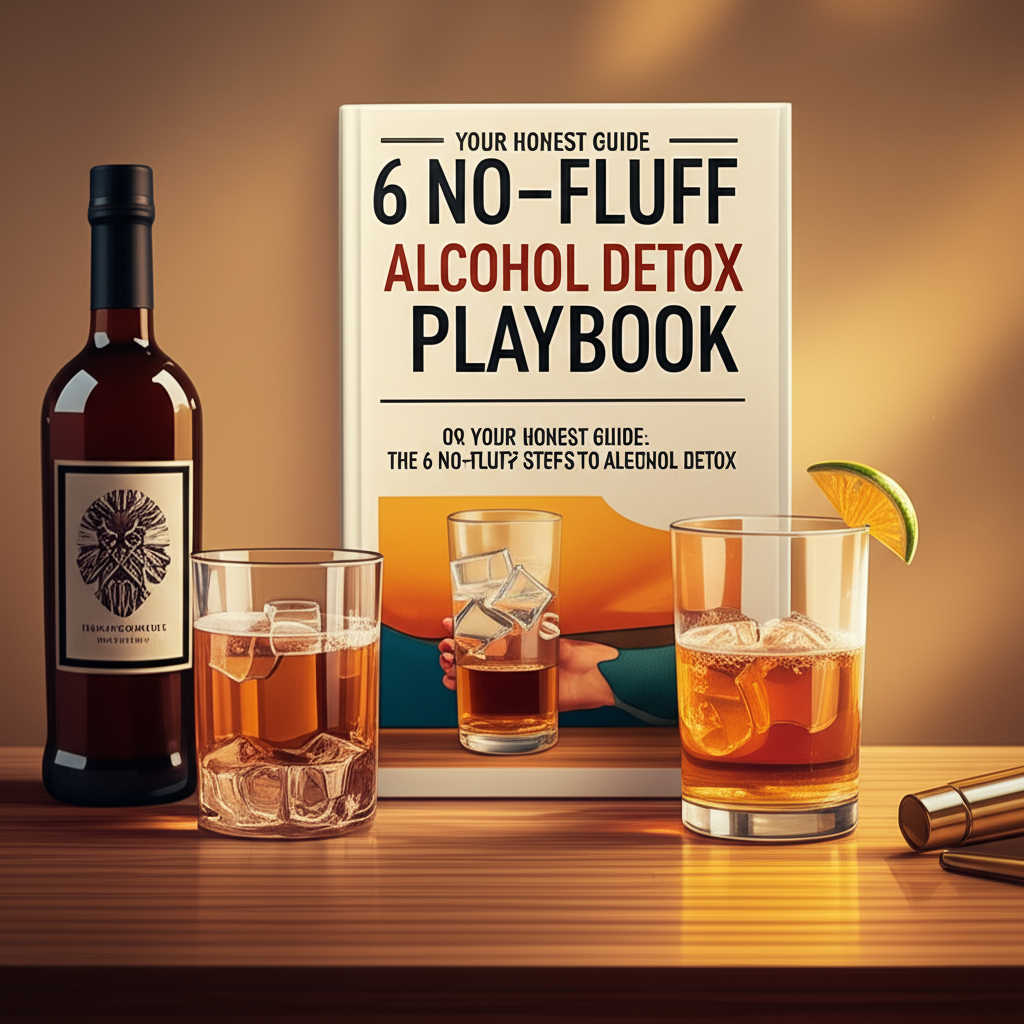The desire to break free from alcohol addiction is a powerful, life-altering decision. It’s a beacon of hope shining through what can often feel like an insurmountable fog. Yet, the journey to sobriety, especially the initial detox phase, can seem daunting, shrouded in medical jargon, overwhelming options, and fear of the unknown. Where do you even begin when you’re ready to reclaim your life?
Forget the endless, confusing articles and the fear-mongering. What you need is clarity, actionable steps, and a direct path forward. This article cuts through the noise to deliver a 3 No-Fluff Alcohol Detox Checklist – essential, straightforward guidance designed to empower you with the knowledge to make informed, safe, and effective decisions about beginning your recovery journey. This isn’t medical advice, but a clear roadmap to understanding the foundational steps.
The Urgency of Change: Why a No-Fluff Detox Plan Matters
Alcohol addiction is a serious health condition, and withdrawing from alcohol, especially after prolonged or heavy use, can be dangerous, even life-threatening, without proper medical oversight. The "no-fluff" approach here isn’t about downplaying the severity; it’s about simplifying the complex to ensure you focus on what truly matters: your safety, your well-being, and your successful transition into a life of recovery.
Understanding these three core pillars will equip you with the confidence to navigate the crucial initial steps, ensuring you’re not just quitting alcohol, but truly setting the stage for lasting change.
Checklist Item 1: Prioritize Professional Medical Assessment & Supervision
This isn’t a suggestion; it’s a non-negotiable first step for anyone considering alcohol detox. Attempting to detox from alcohol alone, especially if you’ve been a heavy or long-term drinker, is incredibly risky. Your body becomes dependent on alcohol, and removing it abruptly can trigger severe, potentially fatal, withdrawal symptoms.
Understanding the Dangers of Self-Detox
When someone dependent on alcohol stops drinking, their central nervous system, which has adapted to the constant presence of a depressant, goes into overdrive. This can lead to a cascade of uncomfortable and dangerous symptoms, known as Alcohol Withdrawal Syndrome (AWS). These can range from mild to severe:
- Mild Symptoms (within 6-12 hours): Tremors (the "shakes"), anxiety, nausea, vomiting, headache, sweating, insomnia.
- Moderate Symptoms (within 12-48 hours): Increased heart rate, elevated blood pressure, more pronounced tremors, confusion, hallucinations (visual, auditory, tactile).
- Severe Symptoms (within 48-72 hours, potentially lasting days):
- Withdrawal Seizures: These can occur without warning and are extremely dangerous.
- Delirium Tremens (DTs): A severe and life-threatening form of alcohol withdrawal involving rapid heart rate, high blood pressure, fever, extreme agitation, severe disorientation, and profound hallucinations. DTs can lead to respiratory failure, cardiac arrest, or aspiration pneumonia.
Trying to manage these symptoms at home, without medical intervention, is a gamble with your life.
The Role of Medical Professionals
Medical professionals are equipped to assess your specific situation, predict potential risks, and provide the necessary care to ensure your safety and comfort during detox. Here’s what they offer:
- Personalized Assessment: A doctor or addiction specialist will evaluate your drinking history, overall health, co-occurring mental health conditions, and previous withdrawal experiences to determine the safest detox plan for you.
- Medication Management: Specific medications, such as benzodiazepines (e.g., Ativan, Valium, Librium), are crucial for managing withdrawal symptoms. These medications help to calm the overactive nervous system, reduce anxiety, prevent seizures, and alleviate discomfort. They must be prescribed and monitored by a doctor.
- 24/7 Monitoring: In a medical detox facility, you’ll have round-the-clock supervision, ensuring that any complications are addressed immediately. This level of care is simply impossible to replicate at home.
- Nutritional Support: Detox can deplete the body of essential nutrients. Medical staff can provide IV fluids, vitamins (especially B vitamins to prevent Wernicke-Korsakoff syndrome), and nutritional guidance.
Where to Seek Help
- Dedicated Medical Detox Centers: These facilities specialize in safe, medically supervised withdrawal from alcohol and other substances. They offer a structured, supportive environment with medical staff available 24/7.
- Hospitals: For severe cases or emergencies, a hospital can provide the initial stabilization needed.
- Outpatient Detox Programs: For individuals with milder dependence and a strong support system, outpatient programs might be an option. However, these still require daily check-ins with medical professionals and are only suitable after a thorough medical evaluation determines low risk.
Crucial Advice: Be completely honest with medical staff about your drinking habits, health history, and any other substances you use. This information is vital for them to create the safest and most effective detox plan for you.
Checklist Item 2: Prepare Your Environment & Support System
Once you’ve secured professional medical supervision for detox, the next critical step is to prepare your immediate environment and build a robust support system. Detox is not just a physical process; it’s a profound mental and emotional challenge. Having the right foundations in place can significantly impact your comfort, safety, and ultimately, your success.
Creating a Safe Physical Space
Whether you’re going to a residential detox center or preparing for a medically supervised outpatient detox, your surroundings matter.
- Eliminate All Alcohol: This seems obvious, but it’s paramount. Remove every bottle, can, and hidden stash from your home, car, and workplace if possible. Leave no temptation.
- Minimize Triggers: Identify places, people, or situations that typically prompt you to drink and minimize exposure to them during this vulnerable period. This might mean temporarily avoiding certain friends, bars, or even specific routes home.
- Ensure Comfort and Serenity: Create a clean, quiet, and comfortable space for rest and recovery. Think soft bedding, dim lighting options, and anything that promotes relaxation.
- Stock Up on Essentials:
- Hydration: Water, electrolyte drinks, herbal teas.
- Nourishment: Easy-to-prepare, bland, healthy foods (broth, toast, fruit, crackers) – appetite might be low.
- Comfort Items: Books, magazines, soothing music, warm blankets, a journal.
- Hygiene: All necessary toiletries.
Assembling Your Support Network
You cannot, and should not, do this alone. A strong support system is your lifeline.
- Inform Trusted Individuals: Let a few close, trustworthy friends or family members know what you’re doing. Explain the process, what you might experience, and how they can best support you (e.g., providing transportation, bringing meals, offering companionship without judgment).
- Set Clear Boundaries: Communicate your needs clearly. If you’re in an outpatient setting, let your supporters know when you need quiet, when you might need a distraction, and what topics to avoid.
- Connect with Professional Support: Beyond medical detox, consider connecting with a therapist or counselor who specializes in addiction. They can help you prepare mentally and emotionally for detox and the subsequent recovery journey.
- Explore Peer Support Groups: Even before detox, attending an Alcoholics Anonymous (AA), SMART Recovery, or other peer support meeting can introduce you to a community that understands your struggle. This can provide immense comfort and reduce feelings of isolation. Having a sponsor or a contact from these groups can be invaluable.
Practical Preparations
Detox can be exhausting and consuming. Minimizing external stressors is crucial.
- Time Off Work/Responsibilities: Arrange for time off from work, school, or other major commitments. Your full focus needs to be on your health.
- Childcare/Pet Care: If you have dependents, make solid arrangements for their care so you can fully commit to your detox without added worry.
- Transportation: Ensure you have reliable transportation to and from medical appointments or the detox facility.
- Financial Planning: If possible, address any immediate financial concerns that could add stress during this period.
Think of this stage like preparing for a major journey. You wouldn’t set off without packing essentials, planning your route, and telling someone where you’re going. Detox is a journey, and preparation is key to a smoother, safer passage.
Checklist Item 3: Plan for Post-Detox Recovery & Relapse Prevention
Detox is an incredible achievement – a vital first step on the path to sobriety. But it’s crucial to understand that detox is not recovery itself. It’s the process of safely removing alcohol from your body. The real work of staying sober, addressing the underlying causes of addiction, and building a fulfilling life begins immediately after detox. Without a solid plan for what comes next, the risk of relapse is extremely high.
Detox is Just the Beginning
Many people experience a "pink cloud" effect immediately after detox – a feeling of euphoria, clarity, and renewed hope. While wonderful, this feeling can be deceptive. It’s easy to believe the worst is over and you can handle things on your own. However, the psychological cravings, emotional triggers, and behavioral patterns that fueled your addiction still exist. Your body might be free of alcohol, but your mind and habits are still wired for it.
Developing a Comprehensive Aftercare Plan
This is where the long-term success of your sobriety is forged. Your aftercare plan should be personalized and multi-faceted.
- Therapy and Counseling:
- Individual Therapy: A therapist specializing in addiction can help you explore the root causes of your drinking, develop coping mechanisms, process trauma, and address co-occurring mental health issues (like anxiety or depression). Cognitive Behavioral Therapy (CBT) and Dialectical Behavior Therapy (DBT) are highly effective.
- Group Therapy: Provides a safe space to share experiences, gain perspective from others facing similar challenges, and build a sense of community.
- Support Groups:
- 12-Step Programs: Alcoholics Anonymous (AA) is the most widely known, offering a structured path to recovery through shared experience, sponsorship, and spiritual principles.
- Non-12-Step Alternatives: SMART Recovery, Refuge Recovery, and LifeRing Secular Recovery offer evidence-based or mindfulness-based approaches for those who prefer alternatives to the 12-step model.
- Family Support Groups: Al-Anon or Nar-Anon can provide vital support for your loved ones, helping them understand addiction and support your recovery in healthy ways.
- Sober Living Environments: For some, transitioning directly from detox to independent living can be overwhelming. Sober living homes offer a structured, substance-free environment with peer support and accountability, bridging the gap between treatment and full independence.
- Medication-Assisted Treatment (MAT):
- Medications like Naltrexone, Acamprosate, or Disulfiram can be incredibly helpful in reducing cravings, blocking the effects of alcohol, or creating an aversion to it. Discuss these options with your doctor or addiction specialist.
- MAT is often most effective when combined with counseling and behavioral therapies.
- Building Healthy Coping Mechanisms:
- Physical Activity: Exercise is a powerful tool for stress reduction, mood improvement, and overall well-being.
- Mindfulness and Meditation: Practices that help you stay present, manage stress, and observe cravings without reacting to them.
- Hobbies and Interests: Rediscover old passions or explore new ones that bring joy and purpose, filling the void alcohol once occupied.
- Healthy Sleep Hygiene: Establishing a regular sleep schedule is crucial for physical and mental recovery.
- Nutrition: Continuing to focus on a balanced diet supports physical and mental health.
- Identifying and Avoiding Triggers: Work with your therapist or support group to identify personal triggers (people, places, emotions, situations) and develop strategies to avoid them or cope with them constructively. This includes developing a clear "relapse prevention plan."
The Importance of Long-Term Commitment
Recovery is a marathon, not a sprint. It’s an ongoing process of learning, growth, and adaptation. There will be good days and challenging days. Understand that:
- Relapse is not failure: If a relapse occurs, it’s a signal to re-evaluate your plan and seek immediate help, not a reason to give up. Many people experience relapse as part of their recovery journey.
- Continuous Learning: Stay engaged with your support system, continue therapy as needed, and keep learning about yourself and addiction.
- Self-Compassion: Be kind to yourself. Recovery takes immense courage and effort. Celebrate your progress, no matter how small.
Conclusion: Your Empowered Path to a Sober Future
Taking the step to address alcohol addiction is one of the bravest decisions you’ll ever make. By focusing on this 3 No-Fluff Alcohol Detox Checklist, you’re not just hoping for a better future; you’re actively building the foundation for one:
- Prioritize Professional Medical Assessment & Supervision: Safeguard your life and well-being by ensuring a medically safe detox.
- Prepare Your Environment & Support System: Set yourself up for success by removing temptations and enlisting the right people to support you.
- Plan for Post-Detox Recovery & Relapse Prevention: Understand that detox is just the start, and commit to the ongoing journey of healing and growth.
This straightforward approach empowers you to cut through the confusion and take decisive action. A life free from the grip of alcohol is within reach, and with these essential steps, you’re well on your way to claiming it. Don’t hesitate – reach out for professional help today and begin your empowered journey to lasting sobriety.








